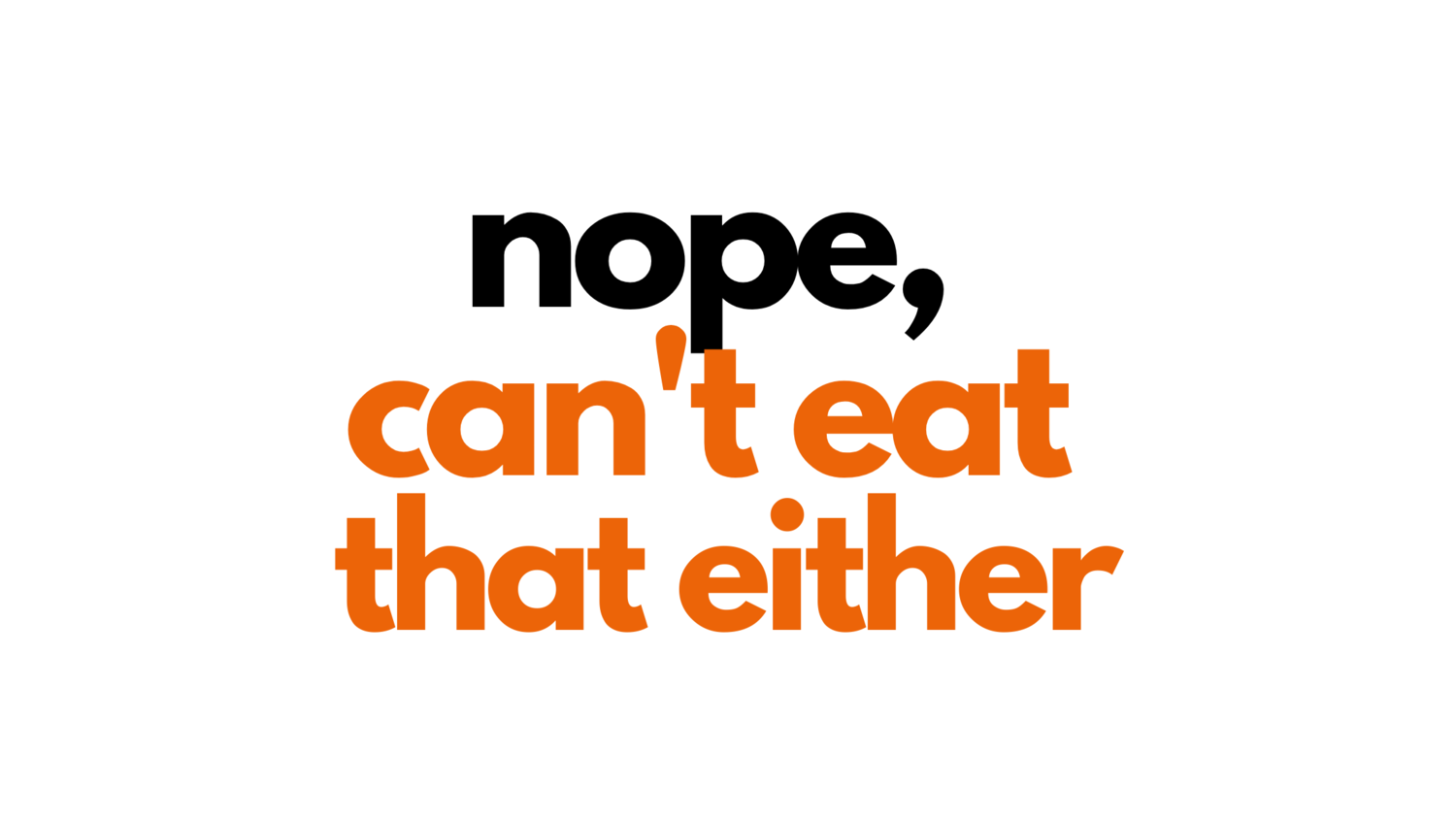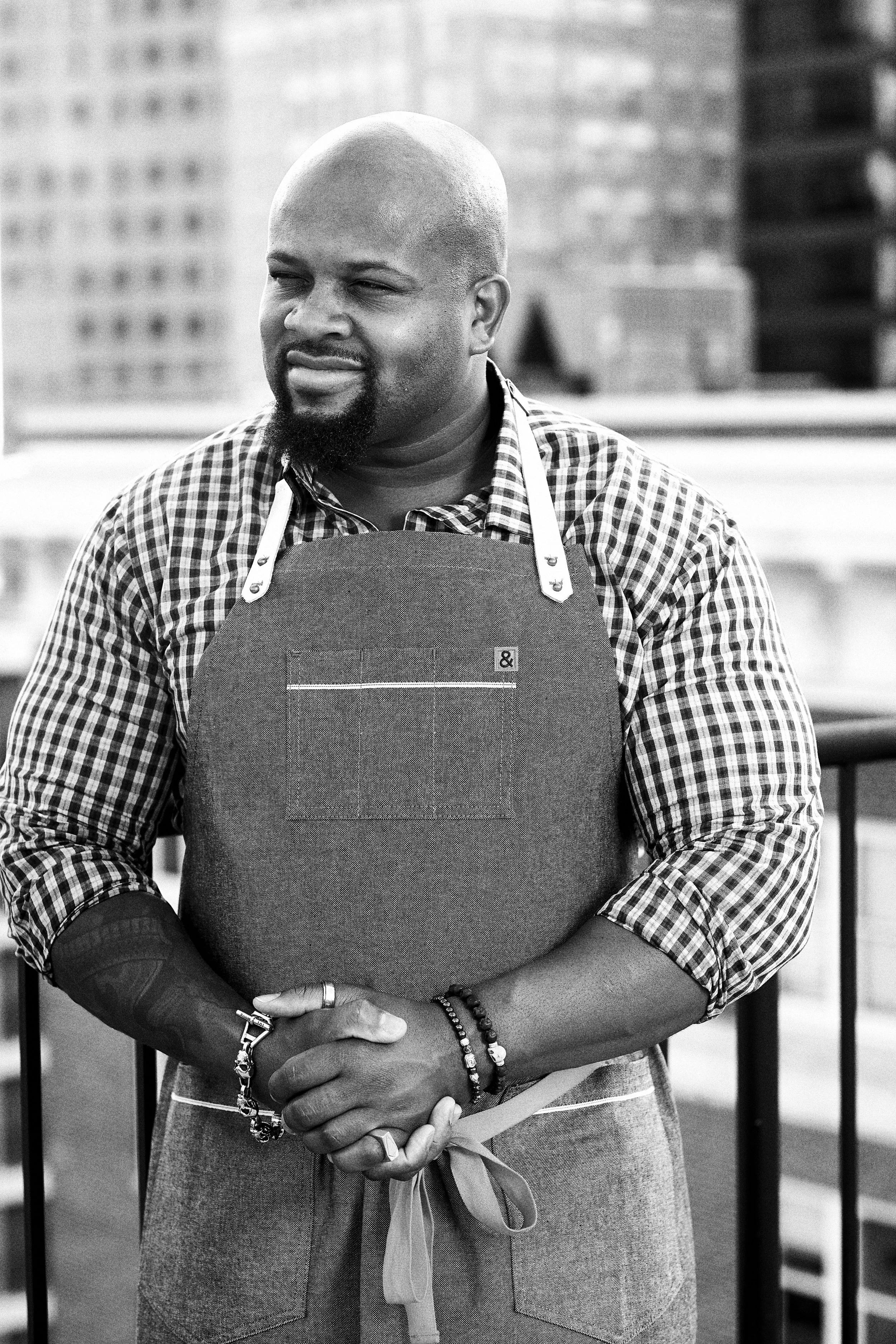Chef David Rose Is Cooking...With Food Allergies
“Food is life...It not only feeds the body, but it nourishes the soul.” - Chef David Rose
As you can tell from this quote from Chef David Rose’s website, he has a deep relationship with food. He is a Food Network Star, an Atlanta-based private chef whose parents are also chefs, a caterer, and a self-proclaimed adventurous eater … all the while living with multiple food allergies. How does he do it? I was excited to explore. Check out our conversation below!
Q: How do you manage being a chef and having severe food allergies? Is it difficult to avoid those allergens in the kitchen when preparing food for patrons?
A: I try my best whenever I’m creating menus to abstain from putting my allergens (peanuts, cashews, and soy) on the menu. I’m very wary of doing it because I know how it could affect me and how easy it is to cross-contaminate. With me being sensitive to those types of nuts, I always ask about allergies and preferences because I know from personal experiences how easy it is to have an allergic reaction from food. I know, first hand, that it’s no joke having allergies. This serves me pretty well, unless someone is adamant about me using a particular nut. If so, I will have my sous chef prepare that part of the meal.
Q: Did anyone try to dissuade you from going to culinary school because of your food allergies?
A: No, everybody was very supportive. I always had a passion for food, cooking, and the culinary arts. Like you, I am always very meticulous about what I eat and ask many questions because sometimes people get embarrassed or don't want to inconvenience anyone. But if you have detrimental reactions to food, that’s a life or death situation.
Q: What precautions do you take when dining out? Is there anything that you make sure to do before trying out a new restaurant?
A: I always ask what the food is prepared with and I always say I have [x, y, z] allergies. I make sure they tell the chef that I need them to use separate utensils, as well as separate pots and pans. It’s you protecting your health and well-being. At the end of the day, most restaurants aren’t going to really care unless you’re adamant about telling them what you’re allergic to and how deadly it could be. Back in the day, a lot of restaurants would laugh about it, but I think with “no gluten” foods and no peanut butter in school, people are a lot more sensitive and accommodating these days. Twelve 12 years ago, this wasn’t at the forefront.
Q: I’ve read about your food allergy reaction that occurred on Food Network Star and am so glad that it was not serious. Have you ever gone into anaphylactic shock? If so, what were the circumstances?
A: There were a couple of instances where I ingested something and it caused a hospital visit, but that was more so due to hives and difficulty breathing — nothing life-threatening where it shut down my system.
Q: What would you like to change for those living with food allergies over the next 5 years?
A: I know some restaurants put “may contain peanuts” or “may contain nuts” with an asterisk, so I think it would be great to have that on their websites. Also, including what could be substituted in meals on menus, because I know sometimes a lot of restaurants don’t always list all of the ingredients in the sauces and the rubs, so just being more thorough. I would like to see sensitivity training for servers — telling them to always be cautious, always ask if there are any allergies, be considerate, and be very thorough to make sure that people with allergies can have the same dining experience. There’s nothing worse than having an allergy, sitting down, and the menu is very restrictive. Everyone is enjoying their food and you have a plate of spinach. Just be more accommodating to make sure everyone has an equal, or close to equal, dining experience.




